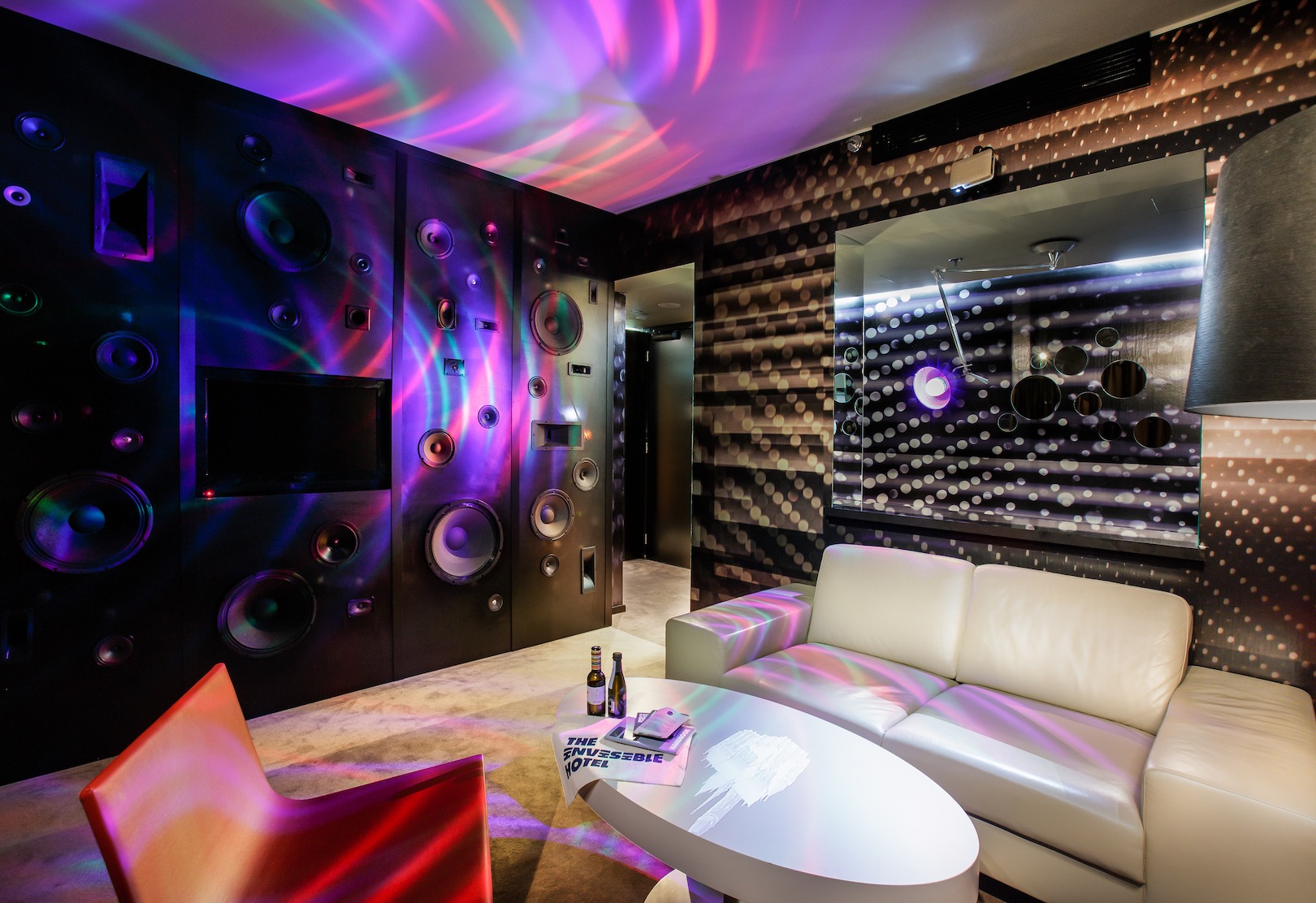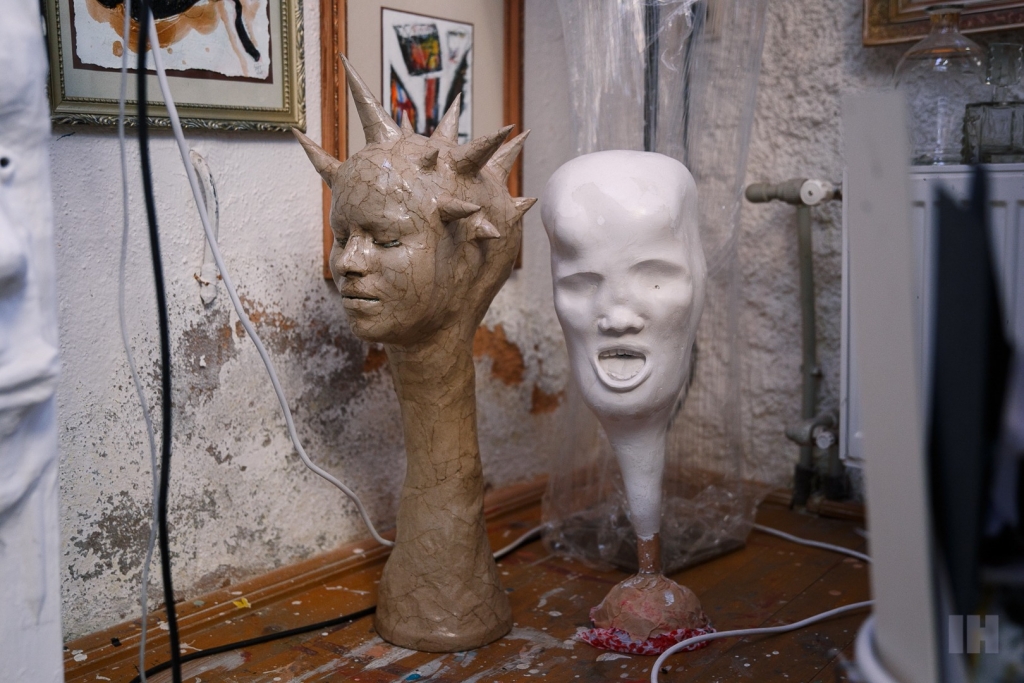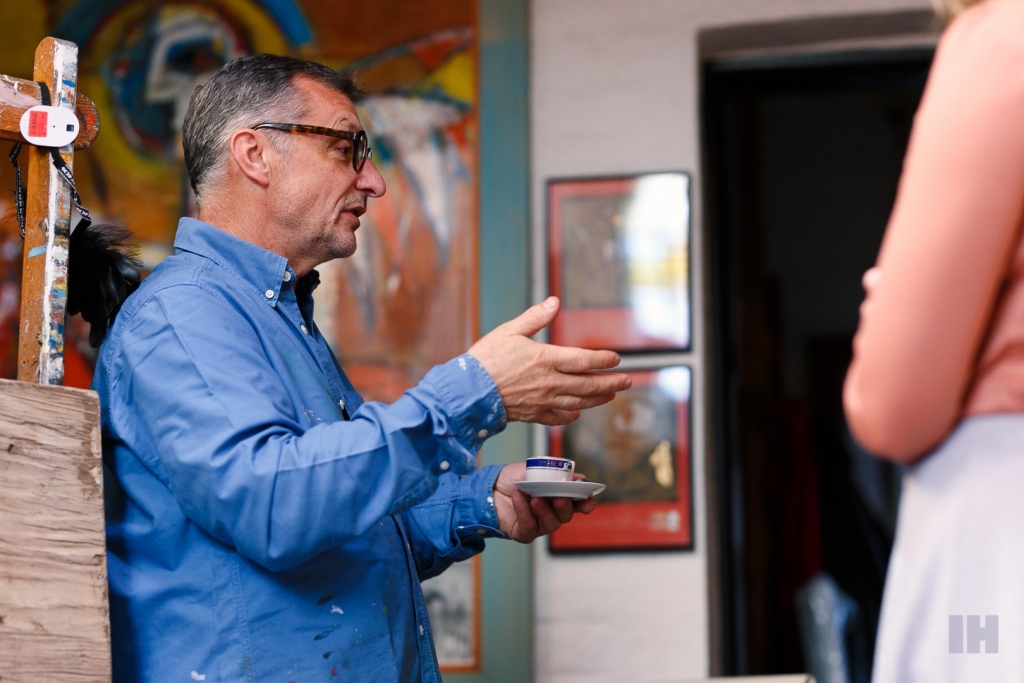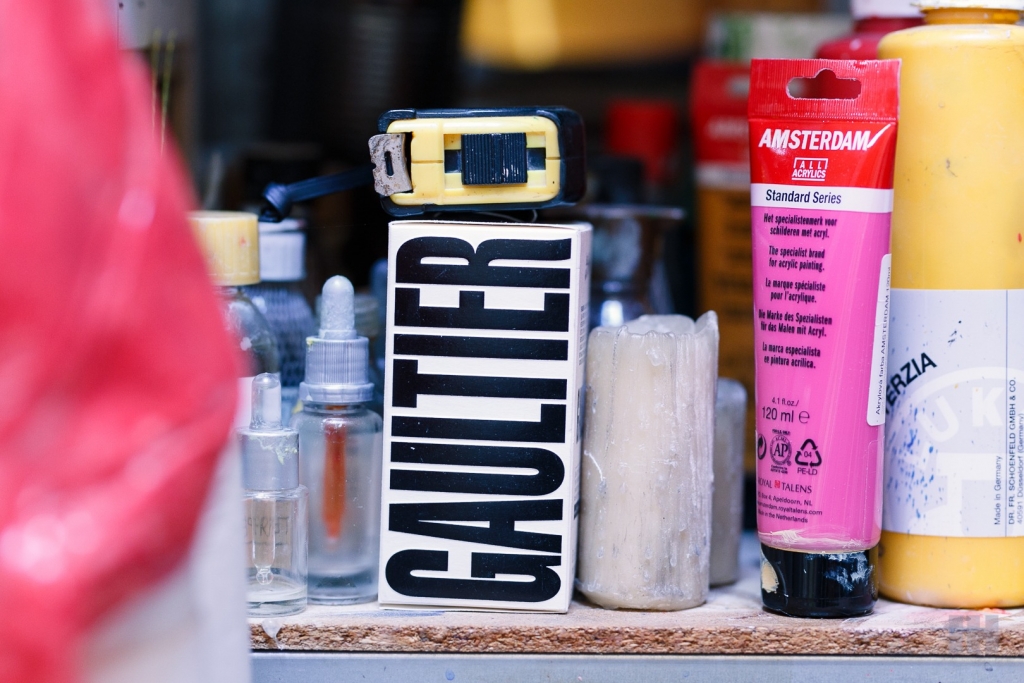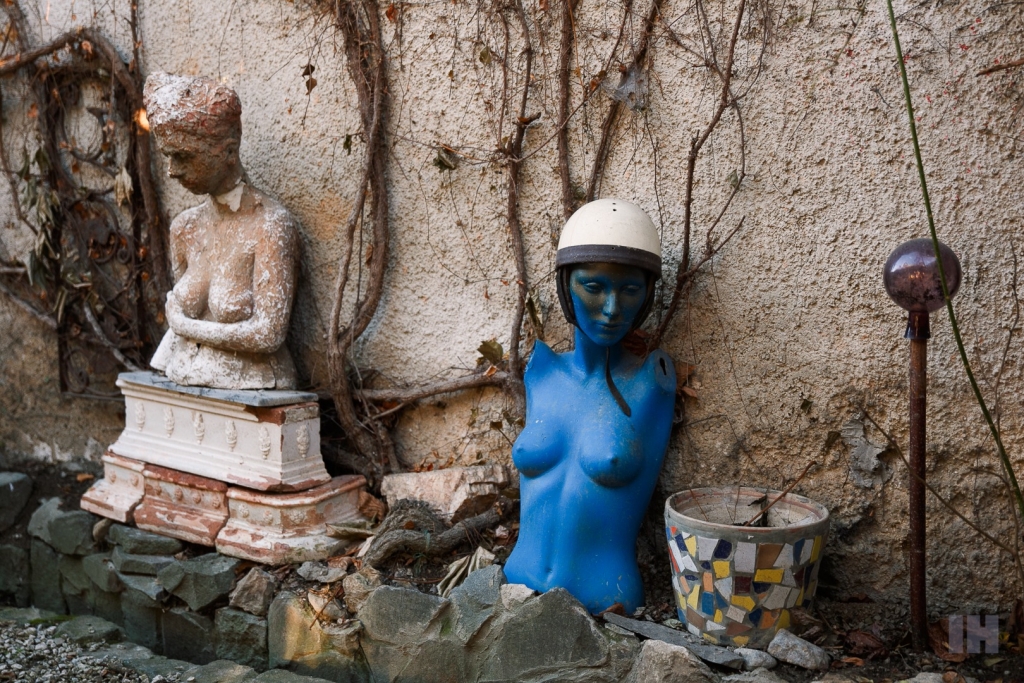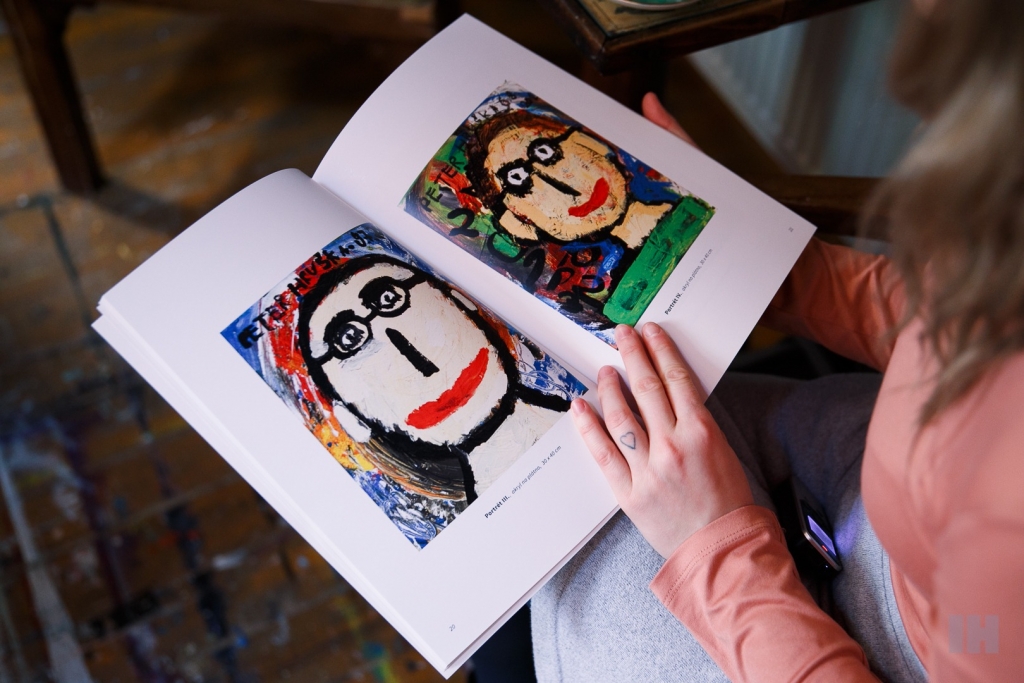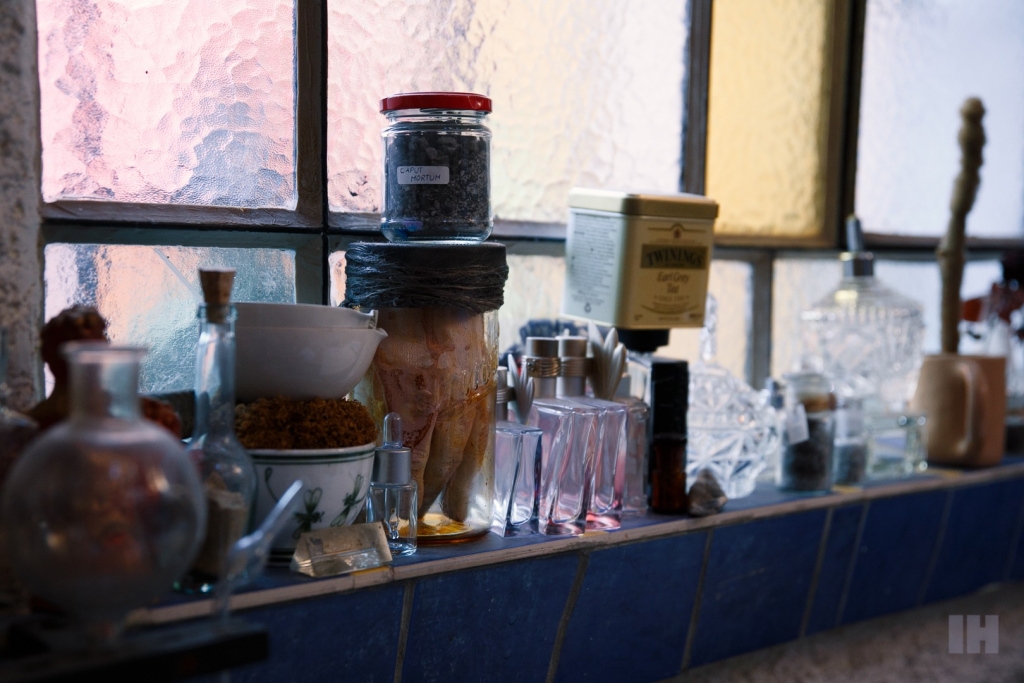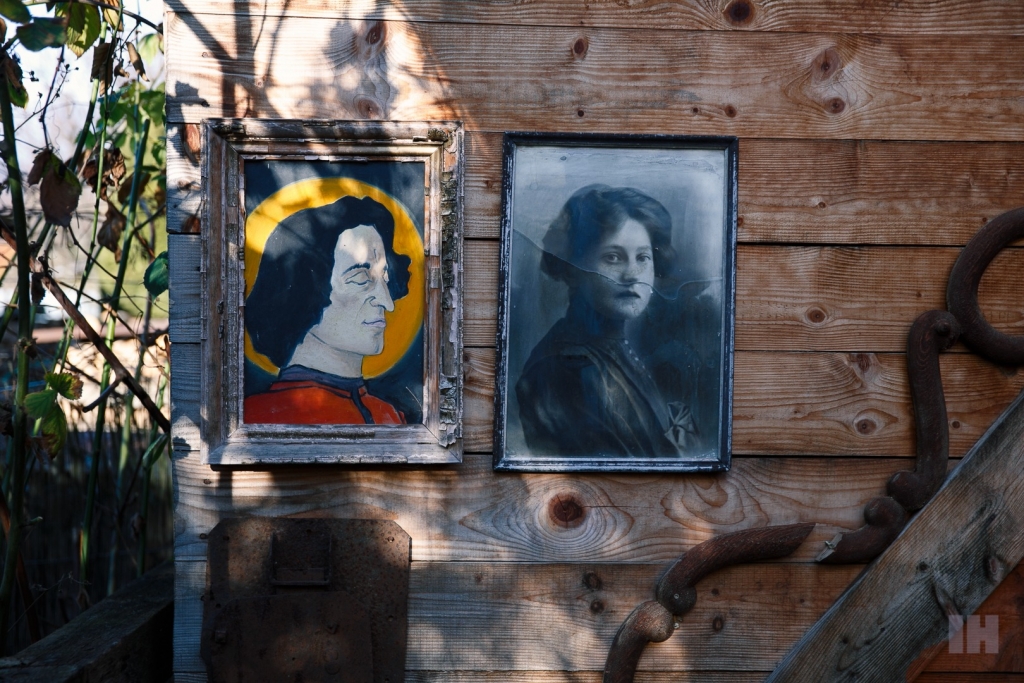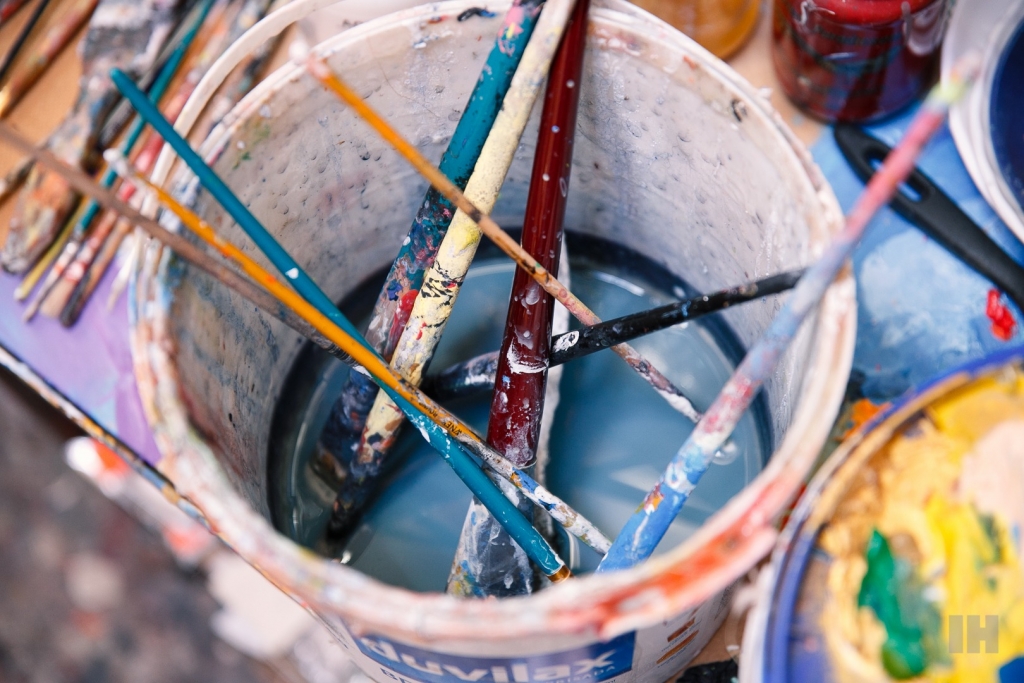Disabled children showed him thousands of angels to paint. Provocative Slovak artist Helmut Bistika
Born as a member of the German minority in the East of Slovakia, his hometown Medzev was settled back in the 14th century. He has worked as a mentor for young people and disabled children thanks to his artistic profession for years, primarily in a non-profit centre Maják Zdoba near the second largest city of the country, Košice. Today, he is known as a controversial artist, especially in the German-speaking countries, and a mentor for the handicapped, whose works of art deserve a place in galleries. Dive into his studio full of atypical angels painted by this artist with a huge heart in the following interview:
If I were a carpenter and you were a …
As he wished to continue the family tradition of his father’s carpentry job, Helmut studied woodwork in Liptovský Hrádek, Slovakia during socialism. Ever since his childhood, however, he has been drawing and painting constantly. According to his own words, it was the former regime that has brought about his inner desire to fly, escape to freedom. Such themes are now present within his numerous artistic and social activities. Helmut studied to attain minimum pedagogical education to be able to work with young people and spent almost a decade as a teacher at a vocational school and later at an art school.
“During this period, I came to understand what a creative process with young people meant for me. We created tons of radio and theatre activities and that was not easy during the regime. While working in an art school, children started drawing some basic doll-like images, cephalopods, simple creatures – all of these brought me to angels. They influenced me to such an extent that I transformed my artistic perception from realistic depictions to more abstract pieces. Simplification is a miraculous thing, especially if you find it in adulthood.
I had to learn to see the primitiveness that children could depict – essentially it meant getting rid of everything heavy and cumbersome, anything that prevented me from being free in my work. The goal was to let go of everything and truly discover oneself.”
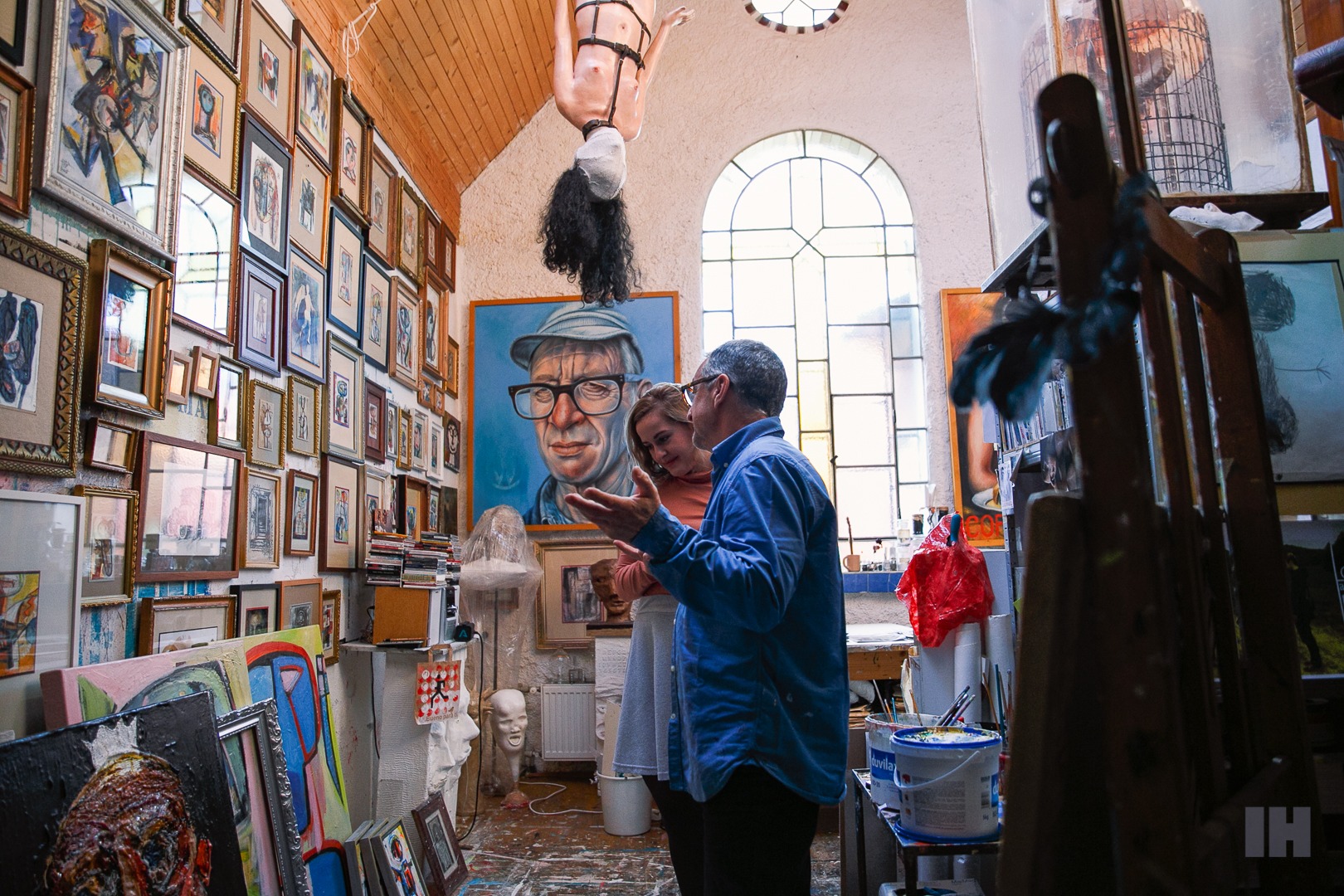
To weep and laugh at the same time
If you are an emerging artist, you want to present your works – even if you don’t know how to. In his youth, Helmut managed to have his first exhibitions not only in Slovakia but also in the neighbouring countries. Thanks to his native language, German, he established several international cooperations. Aside from the exhibitions, Helmut also focused on creative workshops – in this way he was invited to do his very first workshop with disabled people in Arnstadt, Germany. The city has a large centre for the handicapped which helps them with integrating into society.
“During socialism, it seemed as if the handicapped people did not exist, they were never mentioned. Naturally, I experienced a complete shock in Arnstadt. I had no idea how to work with them. I had fifteen young people in the group and each had a different disability, mental or physical. I was supposed to create wooden statues with them over the course of seven days. We had all possible tools, but unfortunately not the required physical skills. Yet, four of them wanted to drill right away.
And so we modelled the statues, and every evening I left, I felt overwhelmed with emotions: I wanted to weep and laugh at the same time. All of a sudden, I was not able to comprehend my own life after seeing the efforts of others who were so limited. I myself felt handicapped after that week. I have been invited to Arnstadt every year since then.”
To fool around, get dirty, invent stories = not useless
A huge change in the life of Helmut Bistika occurred around eleven years ago. The non-profit centre Maják in Sad nad Torysou invited the painter to work with nine severely disabled clients who spend almost the entire year in the facility. It took more than a decade to get the whole complex painted, build a complete studio and exhibit the children’s works in Slovakia, Austria or, for example, the Netherlands. Helmut admits this period was a great deal of hard work not only for the mentors, but also for the children.
“Society thinks that people with disabilities are only dependent on state assistance, but it doesn’t have to be so. We work together to create artworks that are worth presenting at public exhibitions as any other artists. And so it creates the completely opposite effect, and prejudices about what is and is not unnecessary to fall apart. I believe that any activity and creativity can push people forward. Even those who are at first sight less needed.”
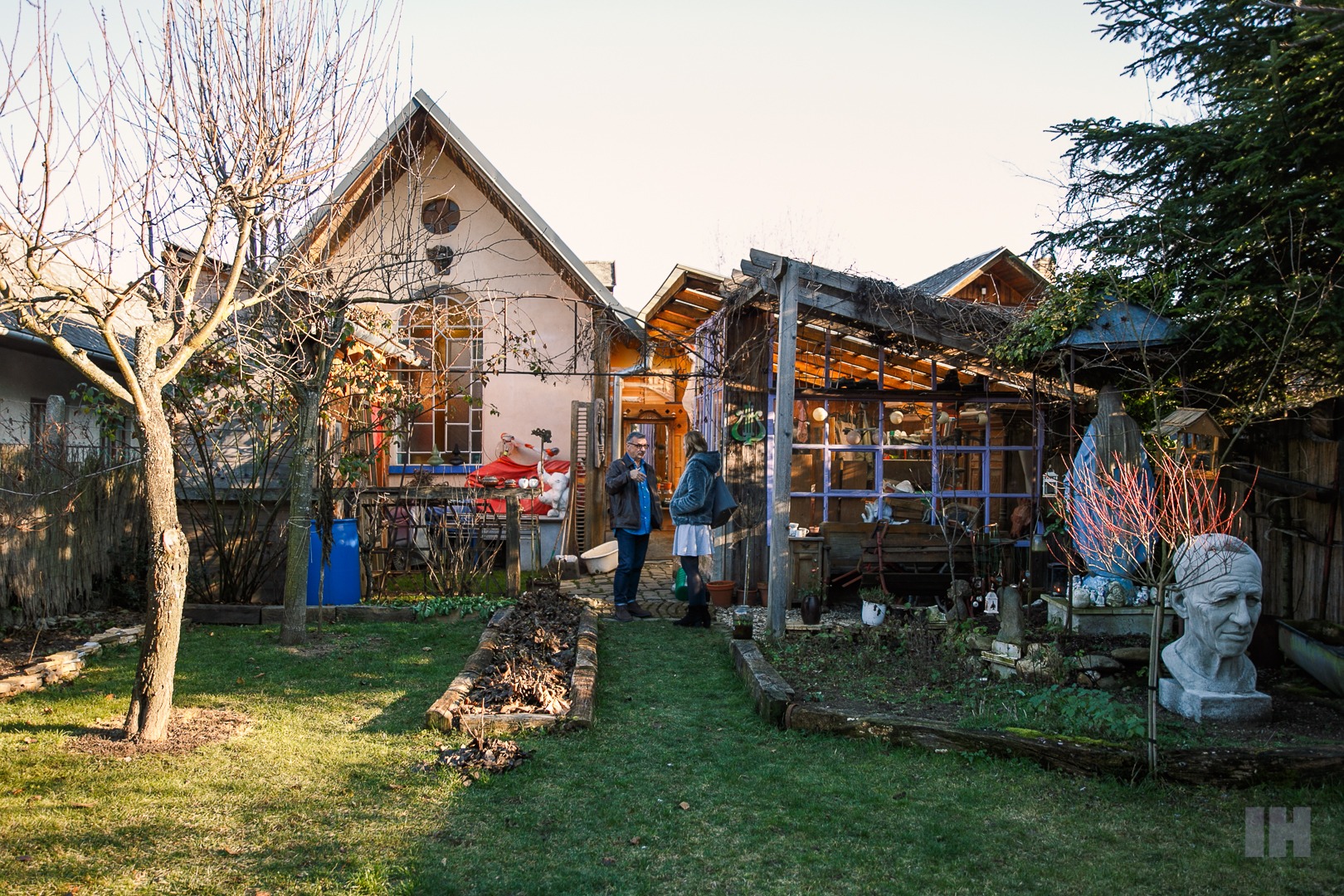
On other planets, time passes more slowly
If you wait all day for instruction, a walk, a pinch of attention, it’s not enough. Helmut Bistika from Medzev, Slovakia has dedicated the last few years working with the disabled, claiming that the behaviour towards the handicapped can never be learned – it is an instinctive behaviour for him. In fact, it is precisely the interaction that can push the children as well as him towards a greater goal.
“Every impulse we give to each other in Maják can benefit both sides. I would not be able to create without the children – watching them transforms a huge amount of emotions in me and it is simply impossible not to react. Each of our clients is different, individual – one needs to draw all day without getting dirty, the other needs to take a shower in the studio because she gets all dirty after.
These children can wait the whole day until somebody tells them what to do. Their reality is completely different from ours. They’re like from another world, another planet. Through creative work, they pass their time quicker and find creative satisfaction. They are happy. Only a few people can imagine the feelings they experience when they see the results of their work in the studio.”
“I am infinitely grateful for every moment of my work and I would not change one bit. I believe everyone has something else in them, untamed, hidden and also indecent. I need contact with those people so I can wash out what I’m going through. This is how I connect my world and the unknown planets of the handicapped people in the themes of flying, escape, angels. It was them who helped me see these things intimately; things I might never have known without them.”
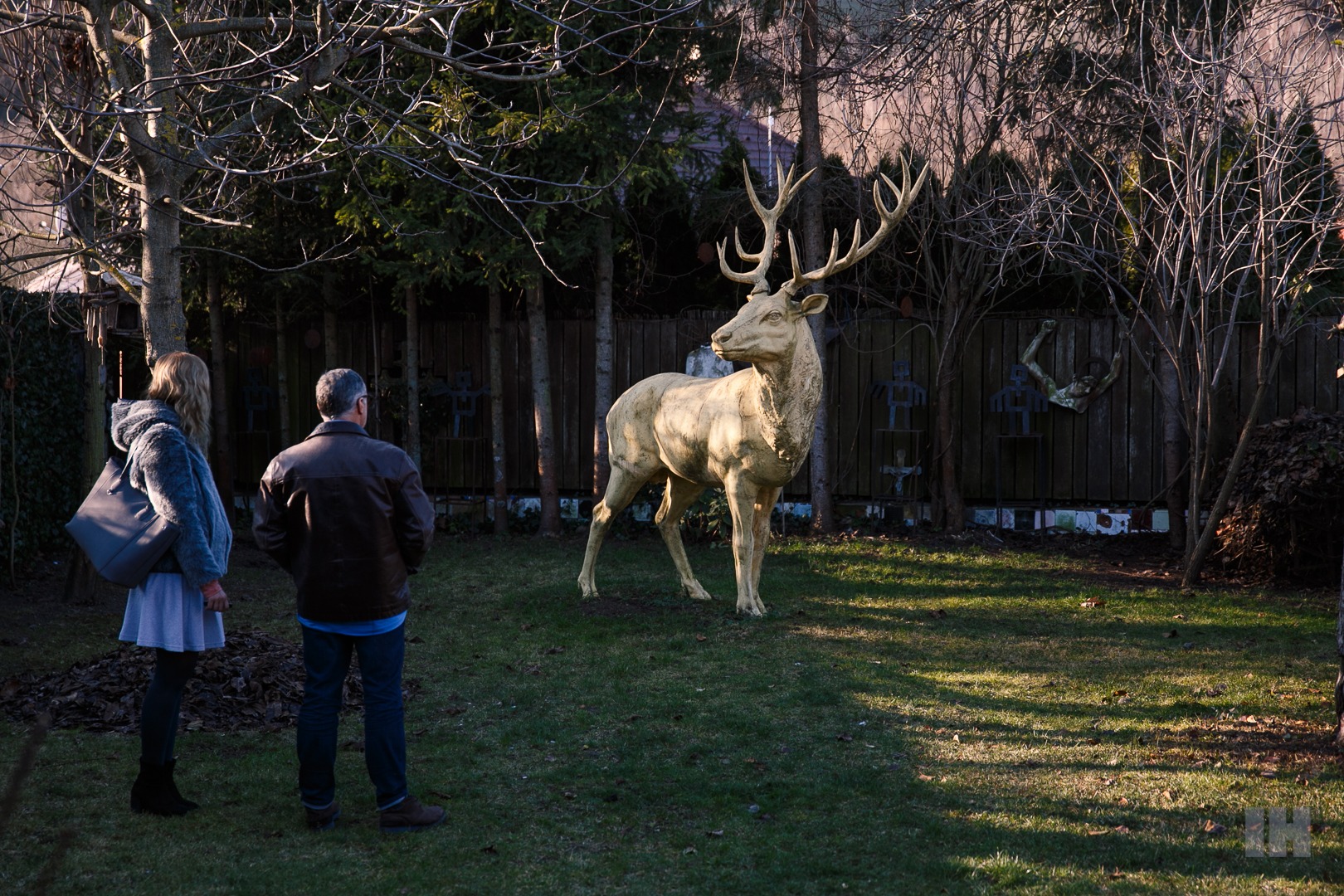
Nobody wanted anything to do with me
Helmut Bistika is a well-known name in Košice, mainly through his provocative displays of the Schwarz perfumery on the Main Street that could have been admired by passers-by for a very long time. When reminiscing about the origin of the cooperation between him and the perfume shop’s owner, Helmut once again turns to the former regime.
“During socialism, everything in the public space was in various shades of grey, lifeless, colourless tones. I wanted to do some displays, but nobody wanted to have anything to do with me – I got laughed at the newly opened department store Dargov, for example. While sitting in a park, I thought I’d ask Mr Schwarz to allow me to give him a free display. I guess some people came to complain afterwards since my installations were quite controversial and the whole thing caused an outrageous reaction. But Mr Schwarz said – bad advertising = good advertising. He understood art, was not afraid to take risks.
Even though time has moved forward, many entrepreneurs are still scared of an open negative response to advertising and are thus stagnating at the same consumer point. For example, I once created a dry tree for a Christmas display at another store, it looked as if it belonged to the Addams family. They put it away the next day.”
Consumption brought disappointment, not freedom
According to Helmut Bistika, it does not matter where one is or what environment surrounds him – if one has an inner need to create, nothing can stop them. Helmut’s lifelong work could be characterized through this metaphor – neither the former greyish regime, nor physical or mental disability has the power to prevent a man from flying to the heights, escaping from the sorrows of the world which could be redeemed by art.
“I couldn’t imagine what it was like in the Western countries, and when the borders finally opened I visited Vienna. I was shocked and disappointed by the amount of consumption I saw. Suddenly, I didn’t understand my dreams of flying – something I had longed for all these years. The freedom to escape from reality was hidden in compassion and kindness to others. The children I had the honour to work with showed me an easy way to escape.
Today I can take my client and introduce him to people in front of the audience, as happened in the talk show Bez šepkára hosted by Milan Kolcun. The presumptions about the handicapped that they cannot do anything, are slowly disappearing. Through art, we are able to directly integrate them into society. I wouldn’t change any moment I have had with them.”
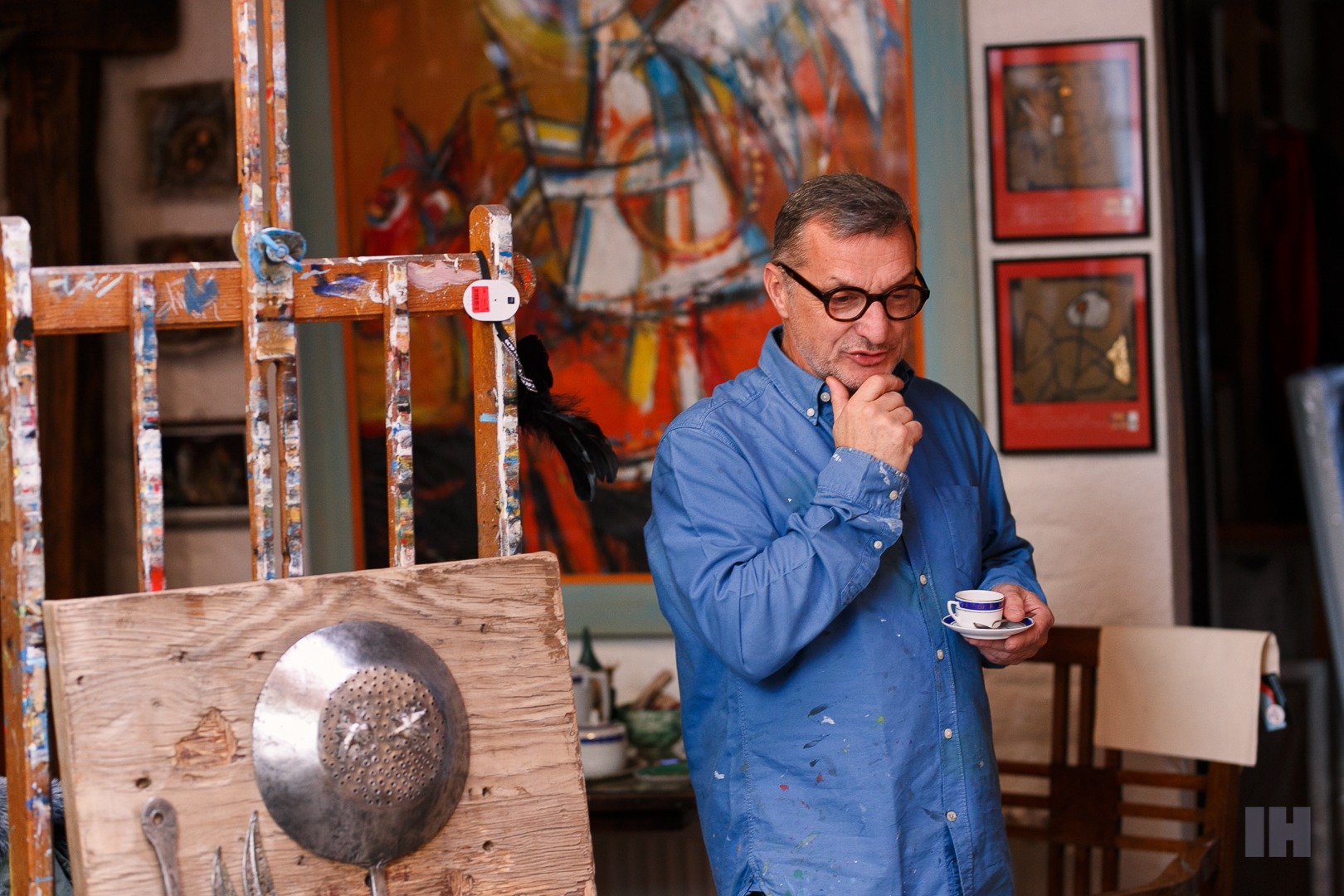
Helmut Bistika is a person who deserves your attention. Visit the café in Medzev, which he created with his distinctive style, in which the smell of coffee blends with the world of art.
Nowhere to stay in Košice? Stop by design rooms by the one & only The Invisible Hotel and uncover more hidden stories.
